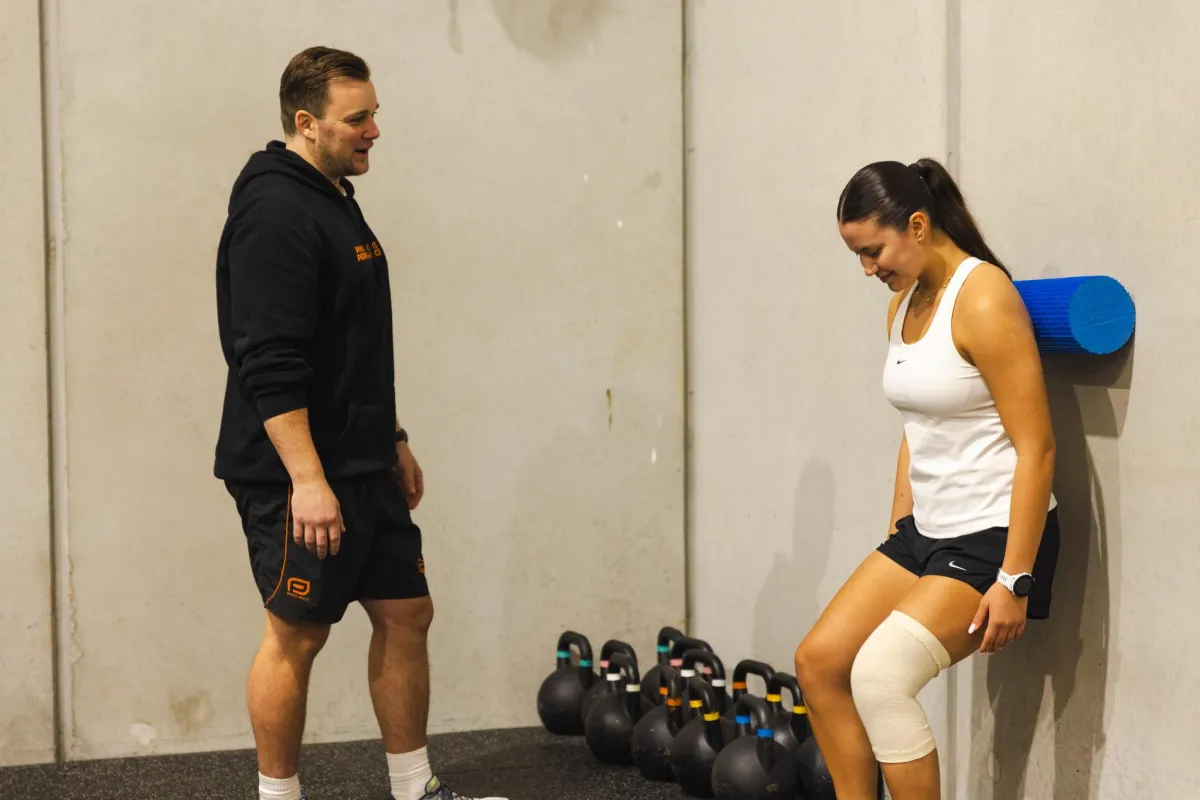Welcome To
Our Blog

MCL Injury Recovery for Field Athletes | Pivot Ringwood Physio
🦵 MCL Injuries in Field Sports: What You Need to Know About Recovery
If you’ve ever landed awkwardly from a jump or been hit side-on during sport, there’s a good chance you’ve felt pain on the inside of your knee. That’s a common sign of a medial collateral ligament (MCL) injury — and if not managed properly, it can seriously delay your return to the field.
At Pivot Sports Performance, we work with athletes every week recovering from MCL sprains and tears. Whether you play AFL, rugby, soccer, or netball, understanding how these injuries happen — and how to rehab them properly — is key to avoiding setbacks.
🔍 What is the MCL and How Does It Get Injured?
The medial collateral ligament (MCL) runs along the inner side of your knee and helps keep the joint stable, especially when changing direction or absorbing contact.
Most MCL injuries occur from a valgus force — meaning something pushes your knee inward, usually during:
Tackles in football or rugby
Landing from a jump
Quick lateral movement or pivoting
Direct impact to the outside of the leg
Depending on the severity, MCL injuries are classified as:
Grade I: mild sprain
Grade II: partial tear
Grade III: complete rupture (often involving other ligaments too)
⚠️ Common Signs and Symptoms
If you’ve strained or torn your MCL, you may notice:
Sharp pain or tenderness along the inside of your knee
Swelling within the first 24–48 hours
A sense of looseness or instability, especially when cutting or pivoting
Difficulty jogging, descending stairs, or changing direction
Trouble returning to high-speed sport activities
🧠 Why Proper Rehab Is So Important
Many athletes assume MCL injuries are “minor” and try to play through them or self-manage with rest. But incomplete rehab often leads to:
Ongoing instability or re-injury
Compensatory hip or ankle issues
Reduced performance in cutting, sprinting, or contact scenarios
At Pivot, we follow a structured, progressive model to guide your recovery:
Acute care – control swelling, restore range of motion
Targeted strength training – focus on quads, hamstrings, adductors, and core
Agility and running drills – rebuild confidence in movement
Testing – hop, strength, and change-of-direction assessments for clearance
We don’t just aim for “pain-free” — we ensure your knee can tolerate the real demands of sport.
🏃♂️ Do You Need Surgery?
In most cases — no.
The majority of MCL injuries do not require surgery, even in contact sport athletes. With the right rehab plan, most athletes can return to play in:
2–4 weeks for Grade I
4–6+ weeks for Grade II
8–12+ weeks for higher-grade injuries (or multi-ligament cases)
Your physiotherapist will guide when to start loading, when to run, and when to test for return.
✅ Final Word
If you’ve recently injured the inside of your knee and think it could be an MCL strain, don’t leave your return to chance. Get assessed properly and start a program that builds confidence — not just comfort.
Book an assessment with our MCL rehab team at Pivot Ringwood or Bundoora, and let’s rebuild your knee strength, stability, and sport performance.
01

Athlete Performance Program
High Performance Training Throughout Your Entire Season.
02

Sports Physio
Sport Specific Injury Management & Prevention
03

Concussion Clinic
Keeping Your Brain Safe With Up To Revolutionary Concussion Care
Website & Marketing Powered By Gymini


